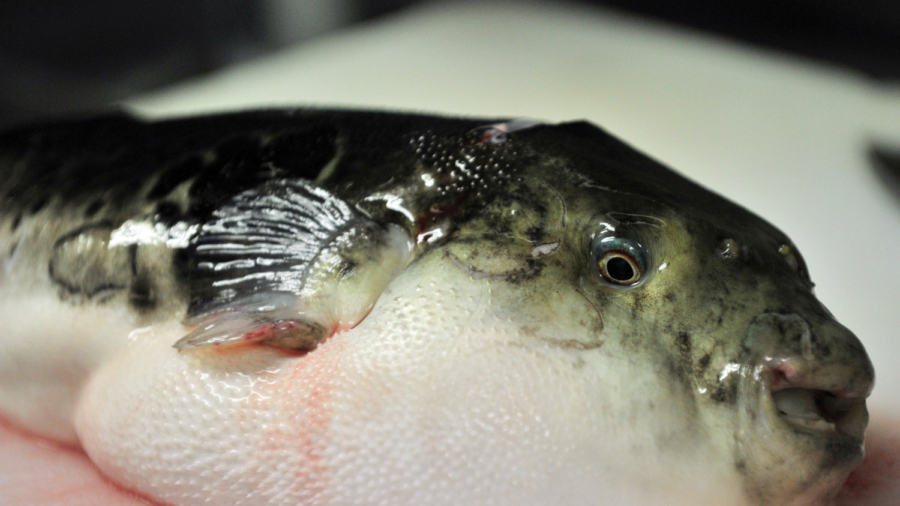A 43-year-old man from Florida will require kidney dialysis for the rest of his life after consuming pufferfish, according to a report.
The man, who has a history of hypertension and chronic kidney disease, was transported to the hospital with complaints of stomach pains, numbness in legs, speaking difficulties, and weakness throughout the body, reported Mail Online, citing a BMJ case report.
According to the report, the man had consumed pufferfish, which is known to contain deadly toxins, about four hours prior, as well as canned foods and cocaine within the past three days. His grandmother had also eaten the fish and had also fallen ill.
Man, 43, needs dialysis for the rest of his life after eating poisonous pufferfish https://t.co/JANQKi8jo6
— Daily Mail US (@DailyMail) June 10, 2019
Medical examinations at the hospital confirmed that the man’s symptoms were caused by the poison from the pufferfish. The man had eaten the liver of the fish, which contains particularly high levels of the poison tetrodotoxin.
Doctors said in the case report that the man, who was not identified, suffered from high blood pressure, pneumonia, and kidney failure. He was kept in intensive care and required intubation and mechanical ventilation.
The doctors who first examined him initially thought the 43-year-old’s symptoms were caused by the cocaine or botulism, another extreme food poisoning before they determined it was caused by the poison of a pufferfish, reported Mail Online.
It was reported that the man made a partial recovery where he regained strength in his muscles but his kidney function did not improve. His grandmother, who did not consume the liver, recovered from the medical ordeal.
Dr. Patricia Almeida, who wrote the case study, highlighted the dangers of pufferfish consumption and recommended people to avoid eating the fish altogether.
“Pufferfish consumption is not commonly seen in the United States; however, both consumers and healthcare professionals should be aware of its particular life-threatening clinical manifestations,” Almeida said in the report.
Pufferfish Poisoning
Pufferfish, commonly known as blowfish, balloonfish, or fugu, is a delicacy in Japan, which is served as sashimi or sushi. The fish can be deadly if not prepared properly. Chefs in Japan are required to undergo rigorous training and qualification before they are allowed to serve the fish.
According to the Food and Drug Administration (FDA), the poison from the pufferfish tetrodotoxin or saxitoxin, which are more potent than cyanide, is generally found in the liver, gonads (ovaries and testes), intestines, and skin of the fish. The flesh could also contain these toxins if the organs are not properly cleaned and removed from the fish during preparation.
FUN FACT: Pufferfishes (Tetraodontidae family) owe their name to the fact that in case of danger they swell up, doubling their size, thanks to the dilatation of their gastric sac temporarily filled with water, which rightens their enemies #redseafish #pufferfish #redseafish pic.twitter.com/RAACUUnju2
— Boardwalkmarine (@boardwalkmarine) February 11, 2019
These toxins could cause symptoms like tingling in different parts of the body, dizziness, problems with speaking, balance, muscle weakness and paralysis, vomiting, diarrhea, and even death in more severe cases.
The federal agency said that there have been recent reports of illnesses from consuming pufferfish that have been imported or caught in Florida.
Commercial importation of pufferfish into the United States is heavily restricted, while people are generally prohibited in importing the fish for personal consumption. Meanwhile, Florida has banned the commercial and recreational harvesting of puffer fish from Volusia, Brevard, Indian River, St. Lucie, and Martin counties on the east coast of Florida due to the risk of poisoning.
“Pufferfish harvested from these Florida counties have been found to contain significant amounts of toxin in the flesh regardless of the preparation technique,” according to the FDA.
From The Epoch Times


